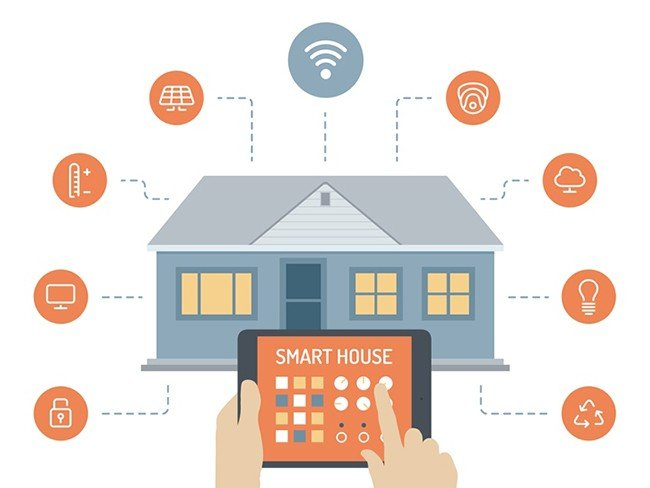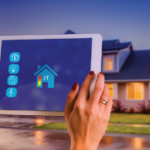In the digital age, the integration of technology with everyday living spaces is revolutionizing the real estate market, particularly the valuation of properties. This blog post delves into the escalating significance of intelligent living environments on real estate values.
Herein, we explore various facets of how these advancements are not just reshaping domestic comfort and convenience but are also acting as a pivotal factor in real estate appraisal. The focus will be on the broader implications for all stakeholders in the property landscape.
The Rise of Intelligent Habitats
The concept of intelligent habitats, commonly known as smart homes, denotes residential setups equipped with interconnected, technology-driven systems. These systems enable remote management of various household functions, ranging from security to energy use.
The proliferation of such habitats is largely attributed to advancements in the Internet of Things (IoT), artificial intelligence (AI), and machine learning technologies. These innovations have made it more feasible and cost-effective than ever to integrate sophisticated systems into residential properties, enhancing their appeal to tech-savvy buyers and investors.
As the digital era progresses, the demand for homes that offer more than just shelter but also advanced technological integration is on the rise. This trend is influencing property values significantly, with tech-enhanced homes fetching higher prices on the market.
The allure of smart homes lies not only in the convenience and efficiency they offer but also in their potential to promote a sustainable and eco-friendly lifestyle, reflecting a growing societal shift towards environmental responsibility.
Transformation in Property Valuation
The advent of smart technology in residential properties has introduced new criteria in the assessment of home values. Real estate appraisers are now considering technological integration as a key factor in determining a property’s market value.
Properties outfitted with smart technology tend to have higher market valuations due to their enhanced functionality, security features, and potential for energy savings. This tech-premium is becoming a significant differentiator in competitive real estate markets.
However, it’s essential to recognize that the value added by smart technology can vary considerably depending on the specific features installed and the local market’s receptiveness to such advancements.
Implications for Real Estate Professionals
For real estate professionals, staying abreast of the latest trends in smart home technology and understanding its impact on property values is crucial. This knowledge not only aids in accurately pricing properties but also in advising clients on potential investments.
Moreover, the trend toward intelligent habitats offers real estate agents a unique selling proposition. By highlighting the benefits of smart technology—ranging from convenience and security to energy efficiency and potential insurance savings—agents can differentiate their listings in a crowded market.
However, this also necessitates a level of technical savvy and familiarity with the latest smart home devices and systems, underlining the importance of continuous learning and professional development in the digital age.
Challenges and Considerations
While the shift towards intelligent habitats presents significant opportunities, it is not without its challenges. One of the main considerations is the rapid pace of technological advancements, which can render certain smart home gadgets obsolete within a few years.
Additionally, the integration of smart technology raises concerns about privacy and security. Real estate professionals and homeowners must be vigilant in ensuring that these systems are secure and that personal information is protected.
Lastly, there’s the issue of digital divide. Not all potential homebuyers are tech-savvy or interested in smart home technology, which could limit the market for such properties.
Conclusion
In summary, the impact of intelligent habitats on property values is profound and multifaceted. As technology continues to evolve, the integration of smart systems into residential properties is not only enhancing living standards but also reshaping the real estate landscape.
For those invested in the future of real estate, embracing these advancements—while navigating the accompanying challenges—will be key to leveraging the opportunities presented by the rise of smart homes. Understanding and adapting to these shifts will ensure that real estate professionals, investors, and homeowners alike can capitalize on the evolving dynamics of property valuation in the digital age.


